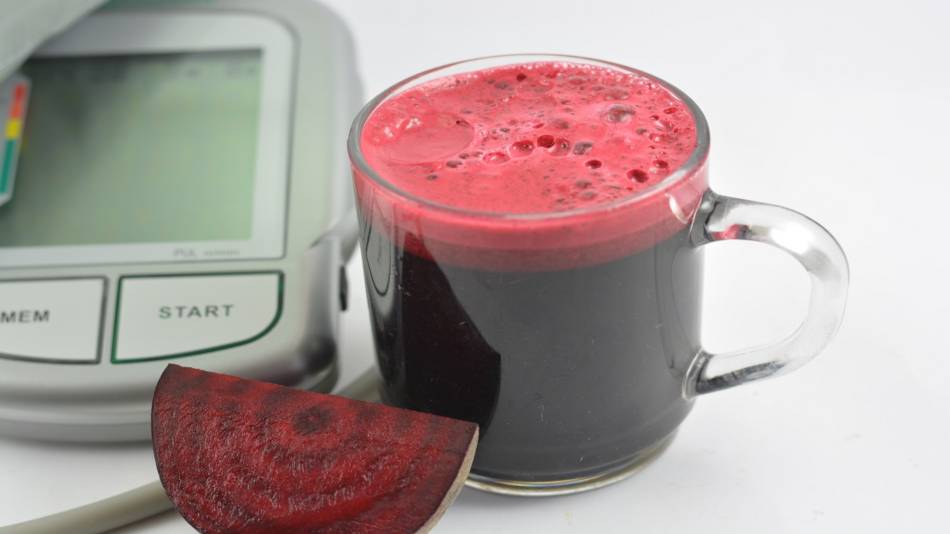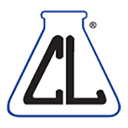Our Members Asked:
Can beetroot juice or supplements lower blood pressure or improve exercise performance, and are they safe?

Answer:
Beetroot juice (also called beet juice) may modestly lower blood pressure, although it does not seem to help people with hypertension already treated with medication.
Nitrate in beetroot can also increase blood flow to muscles, but the evidence is mixed as to whether beetroot juice improves physical performance. At best, it modestly improves some aspects of exercise endurance or performance, especially in people who are not trained athletes and when the exercise is more physically challenging than to what one is accustomed.
The effects of beetroot juice are likely due to nitrate in beetroot, which is converted by the body to the vasodilator nitric oxide. It is unclear if all beetroot supplements provide these effects, as they contain varying and often low amounts of nitrate.
Sign in as a member to learn more, including the amounts of nitrate in beetroot products, including Beetroot Pro Beet Powder Extract, Force Factor Total Beets Original Powder, Lakewood Organic Beetroot Juice, Knudsen and Sons, Ginger Beet Juice, Sport ProElite Shot, Beet It Organic Beetroot Shot, Beet It Sport, Beet Performer with Passion Fruit, Love Beets, PureClean Powder, Red Rush, BeetElite, Beet-Power, and Redibeets. Also learn the best way to store beetroot juice to preserve its nitrate content, and about its safety and potential side effects (including methemoglobinemia, a very rare but potentially fatal condition).
(For information about the cardiovascular and/or exercise performance-enhancing effects of other supplements that may increase the body's production of nitric oxide, see our L-Citrulline and L-Arginine Reviews, as well as our article about hesperidin.)
Join today to unlock all member benefits including full access to all CL Answers and over 1,400 reviews.
Join NowAlready a member? Sign In Here.
Join now at www.consumerlab.com/join/








brooks23705
September 03, 2025The problem with beet juice is the sugar content. I take fermented beet powder.
Reply to this post…
Carol23699
September 01, 2025carolhe
I use Humann Superbeets Products. Have not used Force Factor. I think it helps with energy.
Reply to this post…
Faith23664
August 27, 2025Are total beets superfoodbchews by force factor considered a supplement?
 ConsumerLab.com
ConsumerLab.com
September 24, 2025Yes, this product is considered to be a supplement.
Reply to this post…
marc23654
August 26, 2025Purely anecdotal: My blood pressure was headed into hypertension at 137/85. My doctor recommended beet root powder and combined with losing weight and eliminating as much sodium as possible from my diet, my blood pressure dramatically dropped to 118/67.
tom23709
September 03, 2025ya, losing weight and less salt.
Reply to this post…
Mike23653
August 26, 2025This Force Factor original beet powder is not the same as Force Factor Organic Beet Root Powder! The Organic Beet Root Powder is strictly Beet Root Powder without any additives per my understanding?
 ConsumerLab.com
ConsumerLab.com
August 29, 2025That is correct - Force Factor Total Beets Organic Beetroot Powder is not the same product as Force Factor Total Beets Original Powder. According to its label, the Organic Powder contains only beetroot.
Reply to this post…
richard23643
August 26, 2025BEETS ME!
Reply to this post…
Harry23515
August 06, 2025I took beet powder.
Worse case of arthritic pain I ever had!!!!
OUCH, I took it back....
As far as I know cooked beets do not seem to bother me.
Reply to this post…
Benson23180
June 30, 2025What about eating organic raw beets? I put a third of a medium beet in my smoothie daily. Are there any concerns for that?
 ConsumerLab.com
ConsumerLab.com
July 11, 2025We've added information about the amount of nitrate in various high-nitrate foods to the following section of our article: https://www.consumerlab.com/answers/can-beetroot-juice-or-supplements-help-lower-my-blood-pressure/beetroot-juice/#too-much-nitrate
Reply to this post…
Lisa23155
June 27, 2025I think it's important to note the difference between nitrates that are naturally occurring in fruits and vegetables vs. those synthesized in labs from natural sources like celery. Also chemical nitrates found in other products, often with lots of salt:
To quote Harvard Health Heart Health story, "Nitrates in food and medicine: What's the story?" (February 1, 2022
By Julie Corliss, Executive Editor, Harvard Heart Letter):
"Dark green leafy vegetables (such as spinach, kale, and romaine lettuce), beets, and celery are rich in nitrates. They also contain vitamin C and other antioxidants that inhibit the reaction that creates harmful N-nitroso compounds. In fact, diets that include nitrate-rich vegetables have been associated with lower rates of cancer, including stomach cancer."
 ConsumerLab.com
ConsumerLab.com
June 27, 2025Vitamin C and other bioactive substances in nitrate-containing vegetables may reduce the formation of nitrosamines, which may lower the cancer-causing potential of these vegetables. However, the presence of these compounds does not inhibit the conversion of nitrate to nitrite, and excess nitrite is what can cause methemoglobinemia.
Tracy3333
August 26, 2025Great points
Reply to this post…
Stan23133
June 24, 2025My reading of your articles on so-called nitric acid supplements is that they don’t actually ADD nitric acid itself (as does the nitrate / nitric acid found in beetroot powder extract or juice). Instead they provide arginine, which in turn helps body to increase its OWN production & synthesis of nitric acid. Therefore my question is whether beetroot (extract or liquid) is the best and most concentrated source of actual ADDED nitrate / nitric acid? Are there other food or supplement sources that provide similar amounts of actual ADDED nitrates /nitric acid? If so, are there any with less carbs?
 ConsumerLab.com
ConsumerLab.com
July 11, 2025We've added information about the amount of nitrate in several commonly consumed, high-nitrate foods to the following section of our article: https://www.consumerlab.com/answers/can-beetroot-juice-or-supplements-help-lower-my-blood-pressure/beetroot-juice/#nitrate-concerns
Reply to this post…
Stan23125
June 24, 2025I am a bit confused (what else is new) about whether "excessive “ nitrate consumption with foods or supplements can CAUSE methemoglobinemia, or should simply BE AVOIDED by people who already have that “rare” condition.
 ConsumerLab.com
ConsumerLab.com
June 27, 2025We've added more information to answer your question in the following section of our article: https://www.consumerlab.com/answers/can-beetroot-juice-or-supplements-help-lower-my-blood-pressure/beetroot-juice/#too-much-nitrate
Reply to this post…
KJK
April 30, 2025I have been able to significantly reduce cold sore outbreaks by limiting intake of foods high in L-arginine and/or supplementing with 2,000 mg of l-lysine daily.
 ConsumerLab.com
ConsumerLab.com
May 01, 2025Please see the Concerns and Cautions section our L-Arginine Supplements for information about restricting arginine-rich foods and cold sores https://www.consumerlab.com/reviews/l-arginine-supplements-review/arginine/#hsv.
Also see our article about supplements, canker sores and cold sores https://www.consumerlab.com/answers/can-vitamin-b-12-help-prevent-or-reduce-canker-sores/cancer-sores-aphthous-stomatitis/.
Joella23126
June 24, 2025I can honestly say that I do not have any aches or pains at age 80. I have been drinking about 4 oz. Biotta fermented beet juice daily for several years and then took a break from drinking it, and I soon noticed extremely painful neck discomfort that did not respond to heat therapy or ointments. Shortly after resuming beet juice consumption, I was surprised to notice that my neck stiffness and pain disappeared. I have no financial interest in this product.
Rugaya23700
September 01, 2025Thank you for yr posting...I have been taking Biotta beet root jus for the past 3 months...intermittently...but it helps to reduce my leg aches (I am fr malaysia) I have no financial interest in the product mentioned
Reply to this post…
ann19961
July 09, 2024Too much beet juice seemed to effect my thyroid. When I quit drinking it the numbers went back to normal. Was it the juice? Would like to be able to drink it for BP.
 ConsumerLab.com
ConsumerLab.com
July 19, 2024Thank you for sharing your experience. Please see the following section of our article: https://www.consumerlab.com/answers/can-beetroot-juice-or-supplements-help-lower-my-blood-pressure/beetroot-juice/#thyroid-function
Reply to this post…
Tarynne18672
February 09, 2024I make the juice myself in a blender, 6 beet roots, 1 apple, 1 pear, 1/4 cup fresh lemon blend with filtered water, strain the juice. I drink 2 cups every other day, and monitor my BP. I have seen a significant change in BP in 2 weeks. I am on Lisinopril 20mg x1 daily but it could not move BP's from 150/84. I am not waking up to BP's 127-135/ 70-80. I am walking more and have reduced sodium also. ( which I did before drink the juice) . Personal experience
Reply to this post…
Lori6870
November 29, 2023Are the beetroot products that you mentioned in your article , have they all been tested by consumer lab? I am interested in purchasing the powdered beetroot but want to be careful if consumer labs has not approved them, thank you
 ConsumerLab.com
ConsumerLab.com
January 02, 2024The products discussed in the article were tested by researchers at Purdue University. ConsumerLab has not tested the products to confirm the results.
Reply to this post…
Marilyn6866
August 05, 2023Eating almonds inevitably leads to cold sores for me. Found that L-lysine always handles any cold sore outbreak quickly. I avoid almonds.
JacQue6867
December 22, 2023For me, L-lysine works better or as quickly as acyclovir medication, used to treat cold sores.
 ConsumerLab.com
ConsumerLab.com
December 28, 2023See the "What It Does" section of our L-Lysine Supplements Review for the evidence for and against l-lysine for cold sores https://www.consumerlab.com/reviews/lysine-review-comparisons/lysine/#whatitdoes.
Reply to this post…
Bob P
April 09, 2023I'm taking 4 BP medications and my systolic varies from 114 to 144. Everytime I try beet juice i get stomach cramps (CL mentions this possibility in the above article) but I'm going to try again with food on my stomach to see if it helps.
Reply to this post…
Richard6856
February 23, 2023I got a drop in systolic BP by taking 1 gel cap black seed oil / day.
 ConsumerLab.com
ConsumerLab.com
February 26, 2023See our CL Answer about black seed oil for information about black seed oil supplementation and its effects on blood pressure https://www.consumerlab.com/answers/benefits-of-black-cumin-seed-oil/black-seed-oil/.
Reply to this post…
Barron6851
October 20, 2021I really appreciate having a doctor that will look into these supplements for me. Thank you Dr. Cooperman. Beetroot supplement pills did lower my blood pressure some. Around 7 points on both D and S.
Melody6852
March 03, 2023Which one?
Reply to this post…
eve6842
August 02, 2017what about hibiscus tea for blood pressure?
 ConsumerLab.com
ConsumerLab.com
August 02, 2017Hi Eve - The evidence for hibiscus lowering blood pressure is quite preliminary, and better quality studies are needed.
JOHN6846
January 17, 2022Have been using several flavors of Celestial Seasonings with the first ingredient being hibiscus and gotten good results (about 10 points lower BP). True Blueberry is my favorite. I use three bags per large cup of tea twice a day, and sometimes another cup or two with a single bag. JP1943
D.6843
August 15, 2023Several companies make hibiscus tea which I drank initially because it has no caffeine and I like the tangy taste. Incidentally I discovered it drastically lowered my BP. Systolic went from 140 - 156 down to 115 - 125. Diastolic dropped from 85-97 to 79-82. I was taking lisinopril and after the first day of tea drinking my blood pressure dropped too low to 90/60. I have taken hibiscus tea for several months now and the effect is quite clear. I am working with my doctor to figure out how much is reasonable to take.
 ConsumerLab.com
ConsumerLab.com
August 23, 2023Thank you for sharing this. Several other members have noted this effect with hibiscus tea in the comments on our article about supplements and blood pressure https://www.consumerlab.com/answers/which-supplements-can-help-lower-blood-pressure/supplements-high-blood-pressure/.
Always be sure to consult with your physician before consuming any herbs (including herbal teas) or supplements if taking medication.
Reply to this post…
Deborah6841
August 02, 2017Beet juice is also very high in carbs, around 25 g per cup.
Polly23702
September 03, 2025I eat food not supplements I take a few vitamins. I eat whole food from plants and have lost 25 pounds regained my energy and lowered both my cholesterol and my Blood pressure. Greens and beets are both part of my diet along with berries, mushrooms, beans and fruit. Good luck to everyone trying hard to stay healthy. May your journey add health years to your life.
Reply to this post…
Pamela6840
November 19, 2016Just an FYI on beetjuice, if you choose to lower BP on occasion with beetjuice that is fine, but please avoid drinking beetjuice on a daily basis. It is very high in oxalates and can cause kidney stones. Good health to all.
Polly23703
September 03, 2025Everything in moderation. Good health to you too.
Reply to this post…
fred6838
June 15, 2016I too get 10points or more reduction on both sbp & dbp with one 8 oz cup of fresh juiced beet juice with carrot and celery, every few days. Same as what Dr Oz. show reported.
Reply to this post…
Claire6835
June 15, 2016I traveled from elevation of 2000 to 5000 in mountains. My BP increased from
132/90 t0 144/91 after 4 days at higher elevations . I was concerned so researched
And found study on beet juice that found the nitric oxide in beet juice consumption led to systolic reduction in BP. The next day I took 1/2 of 25 mg. diuretic (Spirinolactone) and I ate the following for lunch (as experiment) to reduce BP; 1 avocado with 1/2 can sliced beets (no sodium added) and handful fresh spinach, topped with Balsamic vinegar. Took BP 5 hours later and BP went from previous 144/91 down to 121/85 (remarkable). Did same lunch next day and went down to 115/80, and day 3 in morning was down to 114/74 without taking diuretic, did not eat lunch yesterday and ate dinner out. This morning BP was 129/83. Will eat above lunch today to see if get same reduced BP tonight.
Glenn6837
August 02, 2017I think that was more due to acclamation than supplemental.
Reply to this post…
Sanford6832
June 15, 2016Be aware that drinking large amounts of beet juice may resultin beeturia, turning the urine red. While the condition is likely harmless, it can confused with passing blood in the urine.
 ConsumerLab.com
ConsumerLab.com
June 15, 2016Thank you Sanford. This is noted under "Cautions" in the answer above.
Reply to this post…
richard6831
June 15, 2016I have no opinion about beetroot. The article presents a balanced view. However, the following facts should be mentioned:
1. A 4mm reduction in systolic blood pressure is worthwhile, and similar to that achieved with some blood pressure medicines, reducing drinking, or reducing sodium.
2. Systolic BP is more important than diastolic.
Polly19996
July 12, 2024I love beets and eating them as a whole food. I use the tops in green smoothies. Nothing is wasted and I get the benefit of fiber.
Reply to this post…
Myra6824
June 15, 2016Two cups daily of home-made beet juice made with fresh or steamed beets reduced my systolic blood pressure from 140-170 to 120-135 allowing me to wean myself of beta-blocker and nitrate prescriptions. However, after about two weeks, I developed itchy bumps on my skin. By reducing my beet juice intake to 1 cup daily the incidence of skin problems has decreased, and I am now taking along with it minimal doses of angiotensin receptor blocker (25 mg/day) and nitrate (5 mg/twice a day). By the way to enhance the taste and effectiveness of the juice, I also add berries, melon, celery,apple …whatever I have on hand.
Raymond6825
June 15, 2016Thank you Myra for your comments on the skin problems after taking the beet juice. I have been taking large doses of arginine (about 2,000 mg), to increase NO for mild hypertension, and within q week or so I also experienced red rashes and bumps on my thigh. This correlation, along with your post, will probably save me a trip to the dermatologist.
margie6826
August 04, 2017High arginine may be contraindicated for people prone to shingles (herpes). Check this out.
 ConsumerLab.com
ConsumerLab.com
August 24, 2017Hi Margie - There is some evidence from laboratory studies that arginine is required for the herpes virus to replicate (https://www.ncbi.nlm.nih.gov/pubmed/7609030?dopt=Abstract) although there do not appear to be published reports of arginine supplementation worsening symptoms in people with shingles.
Annette6828
July 25, 2020After taking 6 gr Arginine/6gr Citrulline for over 1 month, developed what I believe to be shingles. Upon ceasing the use of both supps for 5 days, the rash subsided, but had not completely cleared. I then took 2 gr Arginine to confirm the rash was reactive it, resulting in the rash flaring a bit, thankfully it was short lived. I am discontinuing supplementation for a few weeks, til it's completely receded. My blood pressure had been greatly reduced from the supplementation (150-160 down to 109-130), which I turned to when the ARB (50mg) I was taking made me feel ill with headaches, fatigue, depression and increased BP. I tried 3 different manufacturers of the ARB and have since filed complaints with the FDA to inform thiem of my experience. I like the idea of the spinach, avocado and beet salad, letting food be my medicine.
 ConsumerLab.com
ConsumerLab.com
August 13, 2020Thank you for sharing your experience. To our knowledge, skin rash is not commonly reported by people taking arginine. See the Cautions and Concerns section of our Arginine Supplements Review for information about what has been reported ( https://www.consumerlab.com/reviews/l-arginine-supplements-review/arginine/#cautions). Also, keep in mind that you should always speak with your doctor before taking a supplement in place of a prescribed medication.
Reply to this post…